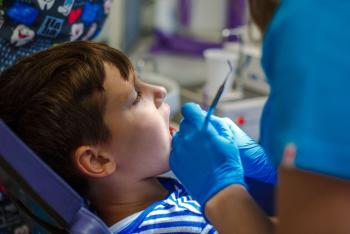This article provides a guide for caregivers on how to keep their children healthy during the school...
Read More
Approximately 3,400 babies pass away suddenly and unexpectedly each year in the United States due to sudden infant death syndrome (SIDS), accidental suffocation in an unsafe sleep environment and other unknown causes.
Although researchers are still working to determine the exact causes of SIDS, being aware of the facts and knowing how to keep your baby safe can help prevent the unthinkable. Here are some tips for reducing the risk of sleep-related infant death and keeping your baby safe.
Newborn and infant sleep safety is easy as ABC:
According to the American Academy of Pediatrics (AAP), caregivers of newborns and infants should follow the sleep safety ABCs until their babies are one year old.
Let’s face it—taking care of a newborn baby can be exhausting and overwhelming. Lack of sleep can lead many parents and caregivers to unintentionally fall asleep while holding the baby. Unfortunately, this is how many newborn drops occur. Newborn falls and drops can result in serious injury, but the good news is that they’re often preventable. and
“Be mindful of feeling sleepy or drowsy, especially after breastfeeding, taking pain medication or being awake in the middle of the night with your baby, especially if you had a C-section,” said Paul Kouyoumdji, M.D., medical director and pediatrician at Inspira Medical Group Pediatrics Salem. “Remember that if you’re feeling drowsy or weak, it’s okay to ask for help and get the rest you need while someone else holds the baby.”
Never leave your baby unattended on couches, beds, chairs, tables or any other place where they might fall. If your baby falls or is dropped, call your pediatrician immediately. They can help you evaluate your baby’s condition and determine your next steps.
Researchers have discovered some factors that may put your baby at extra risk for SIDS. Although some risk factors can’t be controlled, they’re important to be aware of. “SIDS is more common in boys, premature babies and infants two to four months old,” said Dr. Kouyoumdji. “Babies with a family history of SIDS and those exposed to secondhand smoke are also at a higher risk.” If your baby is at increased risk for SIDS, following the AAP’s sleep safety guidelines is vital. Talk to your pediatrician about additional steps you can take to keep your baby safe and healthy.
Protect your newborn from secondhand smoke by keeping your home, car and anywhere else your baby will be smoke-free. Smoke is a known risk factor for SIDS, so you must take every precaution to eliminate it from your baby’s environment. Moreover, don’t smoke or use nicotine products while pregnant and get the help you need to quit.
“No concern is too small when it comes to your baby,” said Dr. Kouyoumdji. “If your baby ever falls or you have a question about your baby’s safety or development, never be afraid to talk to your pediatrician.” They can assess your baby’s condition, provide treatment as needed and offer advice and guidance on how to keep your baby safe and healthy.
Inspira Medical Group now offers pediatric services in Salem county with personalized care for children from birth to age 18 or high school graduation.

This article provides a guide for caregivers on how to keep their children healthy during the school...
Read More
Best practices for baby safety are constantly changing, and keeping your baby out of harm’s way...
Read More
Prepare your child for a tonsillectomy by understanding the procedure, managing recovery...
Read More
The material set forth in this site in no way seeks to diagnose or treat illness or to serve as a substitute for professional medical care. Please speak with your health care provider if you have a health concern or if you are considering adopting any exercise program or dietary guidelines. For permission to reprint any portion of this website or to be removed from a notification list, please contact us at (856) 537-6772